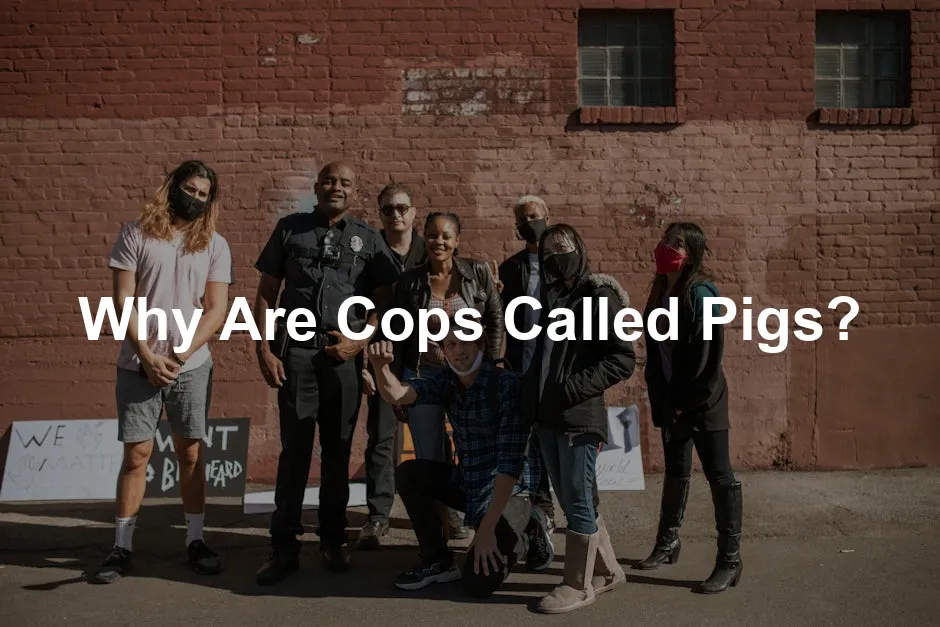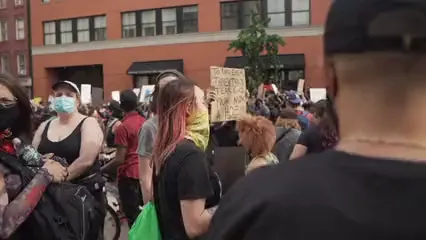
Why Are Cops Called Pigs?
Introduction
The term “pig” is a slang reference to police officers. It carries a controversial weight in discussions about law enforcement. Understanding this term’s origins, cultural context, and broader implications is essential for grasping the complexities of police-community relations.
Summary and Overview
The term “pig” as an insult for police has a rich history. It first emerged in England during the 16th century, where it referred to anyone deemed unpleasant. By the 18th century, it began specifically targeting police officers, reflecting the public’s frustration with law enforcement.
Over time, “pig” evolved into a rallying cry for various social movements. It gained momentum during the counterculture of the 1960s, particularly among groups like the Black Panther Party. Today, the term holds different meanings across communities, often highlighting the tension between police and those who view them as oppressive. Understanding these nuances reveals how language shapes perceptions of authority.

Are you interested in exploring the deeper implications of policing? Dive into The History of Policing in America. This book provides a comprehensive overview of how policing has evolved and its impact on society. It’s a must-read for anyone looking to understand the roots of law enforcement in America!
The Origins of the Term “Pig”
Historical Context
The term “pig” has a long history as a derogatory reference, particularly in England. In the 16th century, it was used broadly to insult anyone unpleasant or greedy. By the 18th century, it began to specifically target police officers. This shift reflected growing frustration with law enforcement. The first recorded use of “pig” to describe a policeman appeared in a 1811 slang dictionary, linking the term to the Bow Street Runners, an early police force in London. As a result, “pig” became synonymous with negative perceptions of authority figures.

Theories Behind the Name
Various theories explain the origin of calling police “pigs.” One view suggests it relates to the greed often attributed to both pigs and some police officers. Pigs are associated with gluttony, which resonated with public frustration over perceived corruption in law enforcement. Another theory links the term to early policing methods, where officers often operated in criminal underworlds, earning disdain from those they policed. Additionally, the term’s evolution mirrors historical tensions between citizens and authority, highlighting societal attitudes toward law enforcement.
For a unique look at how policing intersects with culture, consider the The Wretched of the Earth. This powerful book critiques colonialism and its lingering effects, providing insight into how authority is perceived in different contexts.
The Term’s Resurgence in the 1960s
Cultural Movements
In the 1960s, a wave of social change swept across America. Civil rights struggles and anti-war protests fueled a cultural revolution. During this time, the term “pig” began to gain traction as a derogatory label for police. Activists used it to voice their frustrations against perceived oppression.
The Black Panther Party played a pivotal role in popularizing this term. This organization emerged in 1966 to protect African American communities from police brutality. They viewed officers as an occupying force rather than protectors. Their rhetoric often included the word “pig,” which symbolized their disdain for systemic racism.
Counterculture movements also embraced the term. Young people rallied against traditional authority, and “pig” became a rallying cry. It represented a collective rejection of the establishment and its enforcers. Through protests, music, and art, the term seeped into the cultural lexicon, emphasizing the growing divide between law enforcement and marginalized communities.

Want to explore more about the struggles for justice? Check out Just Mercy. This inspiring book recounts the true story of one man’s fight against injustice and the systemic problems within the legal system. A must-read for anyone interested in social justice!
Key Incidents
Significant events in the 1960s further propelled the term’s popularity. One notable incident was the 1968 Democratic National Convention in Chicago. Thousands of protesters clashed with police as they voiced their opposition to the Vietnam War. During these confrontations, chants of “F*** the pigs!” echoed through the streets. This moment marked a turning point, solidifying the term within activist circles.
Public perception of police shifted dramatically during this era. Many viewed officers as enforcers of an unjust system rather than protectors. As police violence against protesters escalated, the term “pig” reflected a growing sentiment of resistance. It symbolized not just frustration with individual officers, but a broader critique of law enforcement practices. This historical context reveals how language can encapsulate societal tensions and foster collective movements.
Contemporary Usage
Polarization of the Term
The term “pig” evokes strong feelings among different groups. Supporters of police often see it as a disrespectful insult. They argue that it dehumanizes officers and undermines their efforts to maintain safety. On the other hand, critics of police use the term to express their frustrations. For them, “pig” symbolizes systemic issues like brutality and racism.
This divide highlights deeper societal tensions. Discussions around police reform are often colored by this language. The term serves as a rallying cry for those advocating for change. It encapsulates anger towards perceived injustices. Understanding these perspectives is essential in modern conversations about law enforcement. Recognizing how language shapes opinions can help bridge the gap between supporters and critics.

For a deeper understanding of systemic oppression, consider reading The New Jim Crow. This book reveals how systemic inequality and racism are embedded in the criminal justice system, providing essential insights for anyone interested in social justice.
Media Representation
The term “pig” appears frequently in popular culture, shaping public perception of police. Films, music, and literature often employ it to convey disdain for law enforcement. For instance, in the animated film Fritz the Cat, police officers are depicted as corrupt, anthropomorphic pigs. This portrayal resonates with audiences, emphasizing negative stereotypes.

Music also reflects this sentiment. Songs like “Pigs by Pink Floyd criticize authority and police brutality. These artistic expressions amplify the term’s impact, further entrenching it in cultural narratives. Literature, too, has used “pig” as a metaphor for oppressive authority figures, as seen in Orwell’s Animal Farm. Such representations contribute to ongoing debates about policing, often reinforcing negative views. They play a significant role in how society perceives and interacts with law enforcement.
Comparison with Other Slang Terms
Common Slang for Police
Police officers have many nicknames. Some popular ones include “fuzz,” “cops,” and “5-0.” Each term reveals something about society’s views on law enforcement. For example, “fuzz” often implies a more casual or humorous attitude. It suggests a disconnect between the police and the public. In contrast, “5-0” stems from the TV show Hawaii Five-O, highlighting a pop culture influence.
These terms can reflect respect or disdain. Some people use them affectionately, while others employ them derogatorily. This duality shows the complex relationship between police and the communities they serve. Understanding these terms helps illuminate broader societal attitudes.

Regional Variations
Slang for police varies widely across cultures and regions. In the UK, “Bobby” refers to police, deriving from Sir Robert Peel. In Australia, “copper” is common, echoing similar roots. Meanwhile, in Latin America, “poli” is a casual term for police officers.
In France, the word “flic” serves as an informal reference. Each slang term carries its own cultural significance, reflecting local sentiments. Regional variations highlight how language evolves in response to unique societal dynamics. This diversity underscores the importance of context when discussing law enforcement terminology.

To express solidarity in social justice movements, you might want to check out the Anti-Police Brutality T-Shirt. Wearing it can spark conversations and raise awareness about important issues in society.
Please let us know what you think about our content by leaving a comment down below!
Thank you for reading till here 🙂
All images from Pexels




